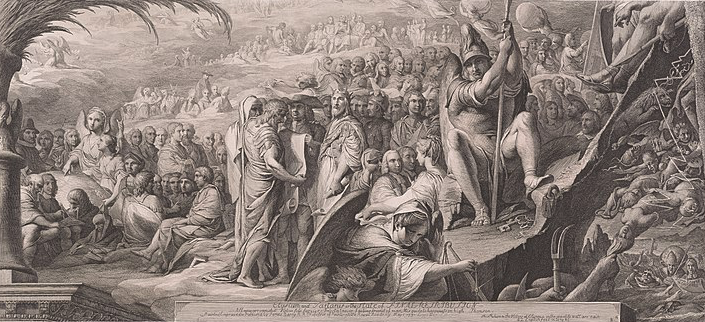
Elysium, also known as the Realm of the Blessed, was a concept in ancient Roman religion and mythology. It was believed to be the afterlife destination for virtuous individuals, such as heroes, soldiers, and other exceptional individuals.
In ancient Rome, Elysium was thought to be a place of rest and happiness, located in the underworld.
It was described as a beautiful and peaceful garden, where the blessed could enjoy a life free from pain and suffering.

The concept of Elysium was heavily influenced by the earlier Greek myth of the underworld, and the Roman poet Virgil wrote about it in detail in his epic poem “Aeneid”.
According to ancient beliefs, a person’s soul would be judged after death, and if deemed virtuous, they would be allowed to enter Elysium.
It was believed that the entrance to Elysium was guarded by the ferryman Charon, who would transport the souls across the river Styx to the underworld.

In ancient Roman art and literature, Elysium was depicted as a place of great beauty and harmony, where the blessed lived in peace and contentment. The inhabitants of Elysium were said to enjoy an eternal spring, surrounded by lush greenery, rolling hills, and crystal-clear streams.
In addition to its depiction as a place of rest and happiness, Elysium was also considered a symbol of hope and inspiration for the living.
People in ancient Rome would often strive to live virtuous lives, in the hope that they would be deemed worthy of entry into Elysium after death.

